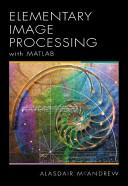
Citizenship Through Secondary History
Citizenship through Secondary History reveals the potential of history to engage with citizenship education and includes: a review of the links between citizenship education and the teaching and learning of history an analysis of how citizenship education is characterised, raising key issues about what could and should be achieved a critique of the discipline and the pitfalls to avoid in teaching citizenship through history case studies offering practical teaching suggestions. History teaching is at the vanguard of citizenship education - the past is the springboard from which citizens learn to think and act. This book offers positive and direct ways to get involved in the thinking that must underpin any worthwhile citizenship education, for all professional teachers, student teachers in history, policy-makers, heads of department and principals.
- ISBN 13 : 1134552610
- ISBN 10 : 9781134552610
- Judul : Citizenship Through Secondary History
- Pengarang : James Arthur, Ian Davies, David Kerr, Andrew Wrenn, Ian Davies, David Kerr, Andrew Wrenn,
- Kategori : Education
- Penerbit : Routledge
- Bahasa : en
- Tahun : 2003
- Halaman : 206
- Google Book : https://play.google.com/store/books/details?id=uQDUHi4RQE4C&source=gbs_api
-
Ketersediaan :
This book offers positive and direct ways to get involved in the thinking that must underpin any worthwhile citizenship education, for all professional teachers, student teachers in history, policy-makers, heads of department and principals ...







